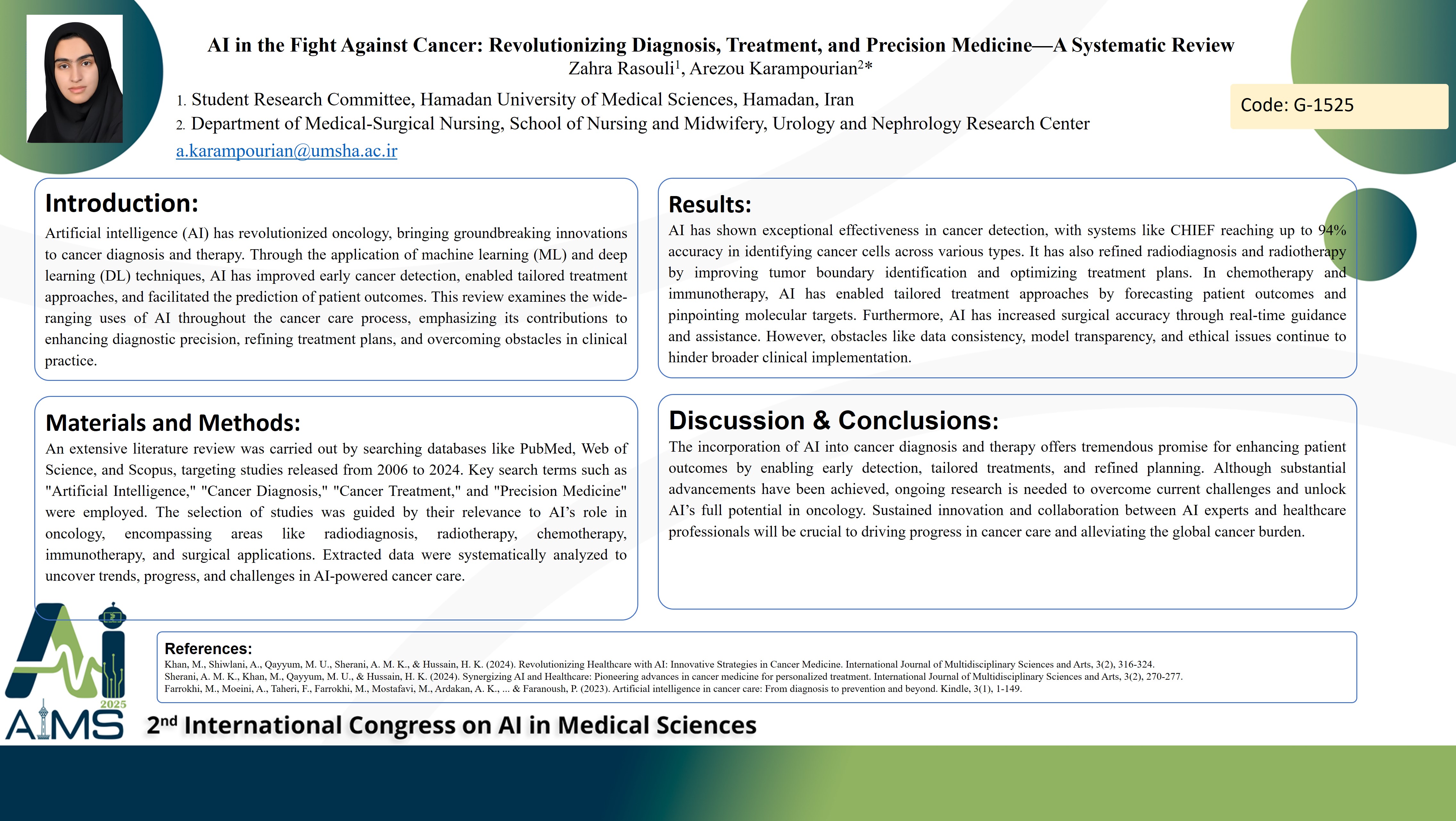هوش مصنوعی در مبارزه با سرطان: انقلابی در تشخیص، درمان و پزشکی دقیق - مروری سیستماتیک
کد: G-1525
نویسندگان: Zahra Rasouli ℗, Arezou Karampourian *
زمان بندی: زمان بندی نشده!
برچسب: تشخیص و درمان سرطان
دانلود: دانلود پوستر
خلاصه مقاله:
خلاصه مقاله
Background and aims: Artificial intelligence (AI) has revolutionized oncology, bringing groundbreaking innovations to cancer diagnosis and therapy. Through the application of machine learning (ML) and deep learning (DL) techniques, AI has improved early cancer detection, enabled tailored treatment approaches, and facilitated the prediction of patient outcomes. This review examines the wide-ranging uses of AI throughout the cancer care process, emphasizing its contributions to enhancing diagnostic precision, refining treatment plans, and overcoming obstacles in clinical practice. Method: An extensive literature review was carried out by searching databases like PubMed, Web of Science, and Scopus, targeting studies released from 2006 to 2024. Key search terms such as "Artificial Intelligence," "Cancer Diagnosis," "Cancer Treatment," and "Precision Medicine" were employed. The selection of studies was guided by their relevance to AI’s role in oncology, encompassing areas like radiodiagnosis, radiotherapy, chemotherapy, immunotherapy, and surgical applications. Extracted data were systematically analyzed to uncover trends, progress, and challenges in AI-powered cancer care. Results: AI has shown exceptional effectiveness in cancer detection, with systems like CHIEF reaching up to 94% accuracy in identifying cancer cells across various types. It has also refined radiodiagnosis and radiotherapy by improving tumor boundary identification and optimizing treatment plans. In chemotherapy and immunotherapy, AI has enabled tailored treatment approaches by forecasting patient outcomes and pinpointing molecular targets. Furthermore, AI has increased surgical accuracy through real-time guidance and assistance. However, obstacles like data consistency, model transparency, and ethical issues continue to hinder broader clinical implementation. Conclusion: The incorporation of AI into cancer diagnosis and therapy offers tremendous promise for enhancing patient outcomes by enabling early detection, tailored treatments, and refined planning. Although substantial advancements have been achieved, ongoing research is needed to overcome current challenges and unlock AI’s full potential in oncology. Sustained innovation and collaboration between AI experts and healthcare professionals will be crucial to driving progress in cancer care and alleviating the global cancer burden.
کلمات کلیدی
Artificial Intelligence, Cancer Diagnosis, Cancer Treatment
